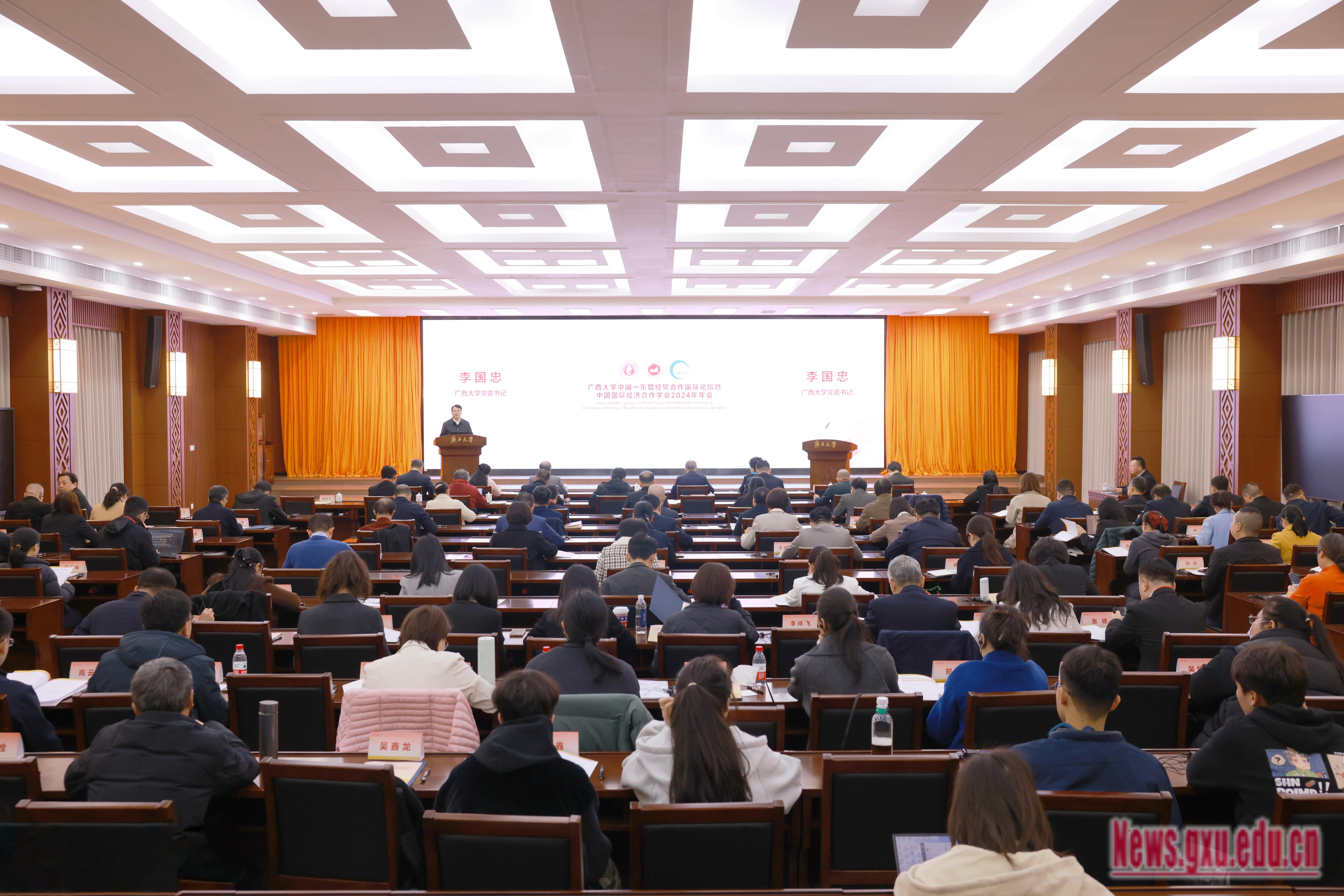On December 28th, the China-ASEAN Economic and Trade Cooperation Forum, hosted by Guangxi University and organized by the China-ASEAN School of Economics/China-ASEAN Institute of Financial Cooperation, Guangxi University, was successfully held.
Chen Jian, Distinguished Expert of the Talent Pool for Participation in the Deliberation and Administration of State Affairs under the National Committee of the Chinese People's Political Consultative Conference and former Vice Minister of the Ministry of Commerce; Li Guozhong, Secretary of the CPC GXU Committee; and Gao Yuanyuan, President of the China Association for International Economic Cooperation, attended the opening ceremony and delivered speeches. Xia Guo'en, Vice President of GXU, presided over the opening ceremony.
Chen Jian provided a comprehensive review of China-ASEAN cooperation from a global political-economic perspective, highlighting the remarkable achievements in areas such as trade and investment, the Belt and Road Initiative, and the Regional Comprehensive Economic Partnership (RCEP) since the establishment of dialogue relations in 1991. Given the current complex international economic environment, he called for deeper cooperation in institutional mechanisms, the digital economy, green development, and cultural exchange. He urged both sides to address challenges jointly with a more open and inclusive attitude to create a brighter future for China-ASEAN economic and trade cooperation.
Li Guozhong emphasized that cooperation with ASEAN is one of GXU’s distinctive features, and the university has been continuously making efforts in ASEAN-related matters. He noted that the China-ASEAN School of Economics, Guangxi University, supported by the Ministry of Education and the People's Government of Guangxi Zhuang Autonomous Region, is committed to establishing itself as a comprehensive platform integrating "three bases, one think tank, and one center". Li expressed hope that participating guests would continue supporting GXU’s development and strengthening cooperation, contributing to the construction of Guangxi and the China-ASEAN community of shared future.
Gao Yuanyuan highlighted the deepening integration of standards and rules between China and ASEAN, which has laid a solid foundation for enhancing the connectivity of products and services as well as facilitating trade and investment within the region. She noted that this marks a new phase of win-win cooperation between China and ASEAN. Gao emphasized the importance of strengthening collaboration between the China Association for International Economic Cooperation and the China-ASEAN School of Economics, Guangxi University, deepening think tank research, and jointly supporting national strategic decision-making.
The forum featured the release of two significant reports: Research Report on Chinese Industrial Relocation to Southeast Asia under New Circumstances, and China-ASEAN Financial Development and Cooperation Report 2024.
In the keynote session, experts and scholars from both domestic and international institutions delivered keynote speeches and analyzed economic trends. These institutions included Universiti Tunku Abdul Rahman (Malaysia), Chiang Mai University (Thailand), Vietnam National University, Royal University of Phnom Penh (Cambodia), the Financial Office of the CPC Guangxi Committee, the Chinese Academy of International Trade and Economic Cooperation, and the Party School of the CPC Central Committee.
In the high-level dialogue session of the sub-forum, participants engaged in in-depth discussions on three topics: "China-ASEAN Digital Economy Cooperation", "Financial Services Supporting High-Quality Industrial Cooperation between China and ASEAN", and "Advancing the Construction of China-ASEAN Free Trade Area Version 3.0".
The forum, themed "China-ASEAN Economic and Trade Cooperation and High-Quality Development", attracted over 150 participants, including experts and scholars from China, Cambodia, Malaysia, Thailand, and Vietnam, as well as government officials and corporate representatives.

 Home
>
News & Events
>
News
Home
>
News & Events
>
News
 Home
>
News & Events
>
News
Home
>
News & Events
>
News




